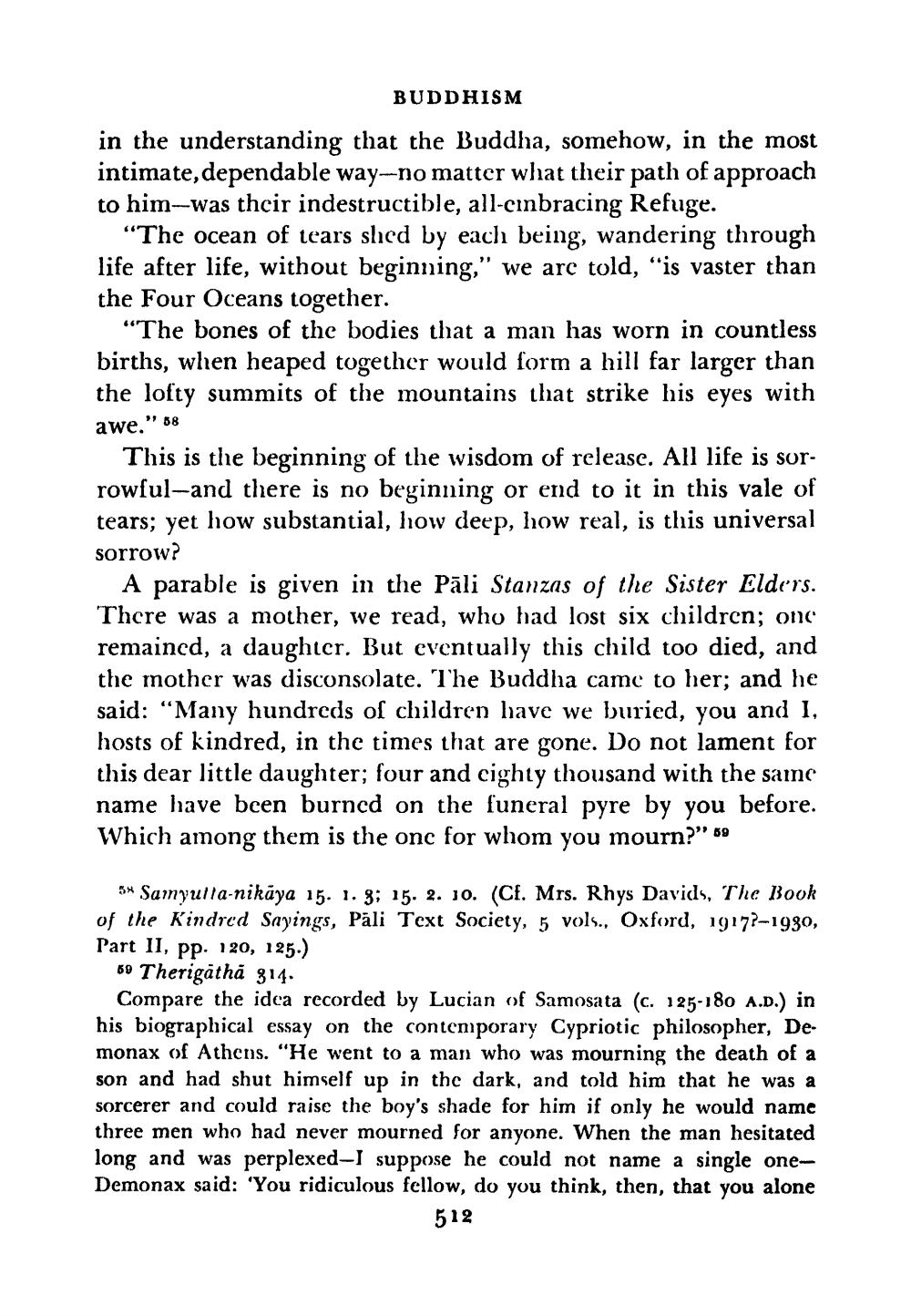________________
BUDDHISM
in the understanding that the Buddha, somehow, in the most intimate, dependable way-no matter what their path of approach to him-was their indestructible, all-einbracing Refuge.
"The ocean of tears shed by each being, wandering through life after life, without beginning," we are told, “is vaster than the Four Oceans together.
“The bones of the bodies that a man has worn in countless births, when heaped together would form a hill far larger than the lofty summits of the mountains that strike his eyes with awe." 58
This is the beginning of the wisdom of release. All life is sorrowful-and there is no beginning or end to it in this vale of tears; yet how substantial, how deep, how real, is this universal sorrow?
A parable is given in the Pāli Stanzas of the Sister Elders. There was a mother, we read, who had lost six children; one remained, a daughter. But eventually this child too died, and the mother was disconsolate. The Buddha came to her; and he said: “Many hundreds of children have we buried, you and I, hosts of kindred, in the times that are gone. Do not lament for this dear little daughter; four and cighty thousand with the same name have been burned on the funeral pyre by you before. Which among them is the one for whom you mourn?" 69
5* Samyulla-nikāya 15. 1.3; 15. 2. 10. (Cf. Mrs. Rhys Davids, The Book of the Kindred Sayings, Pāli Text Society, 5 vols., Oxford, 19177-1930, Part II, pp. 120, 125.)
69 Therigātha 314.
Compare the idea recorded by Lucian of Samosata (c. 125-180 A.D.) in his biographical essay on the contemporary Cypriotic philosopher, Demonax of Athens. "He went to a man who was mourning the death of a son and had shut himself up in the dark, and told him that he was a sorcerer and could raise the boy's shade for him if only he would name three men who had never mourned for anyone. When the man hesitated long and was perplexed-I suppose he could not name a single oneDemonax said: 'You ridiculous fellow, do you think, then, that you alone
512




